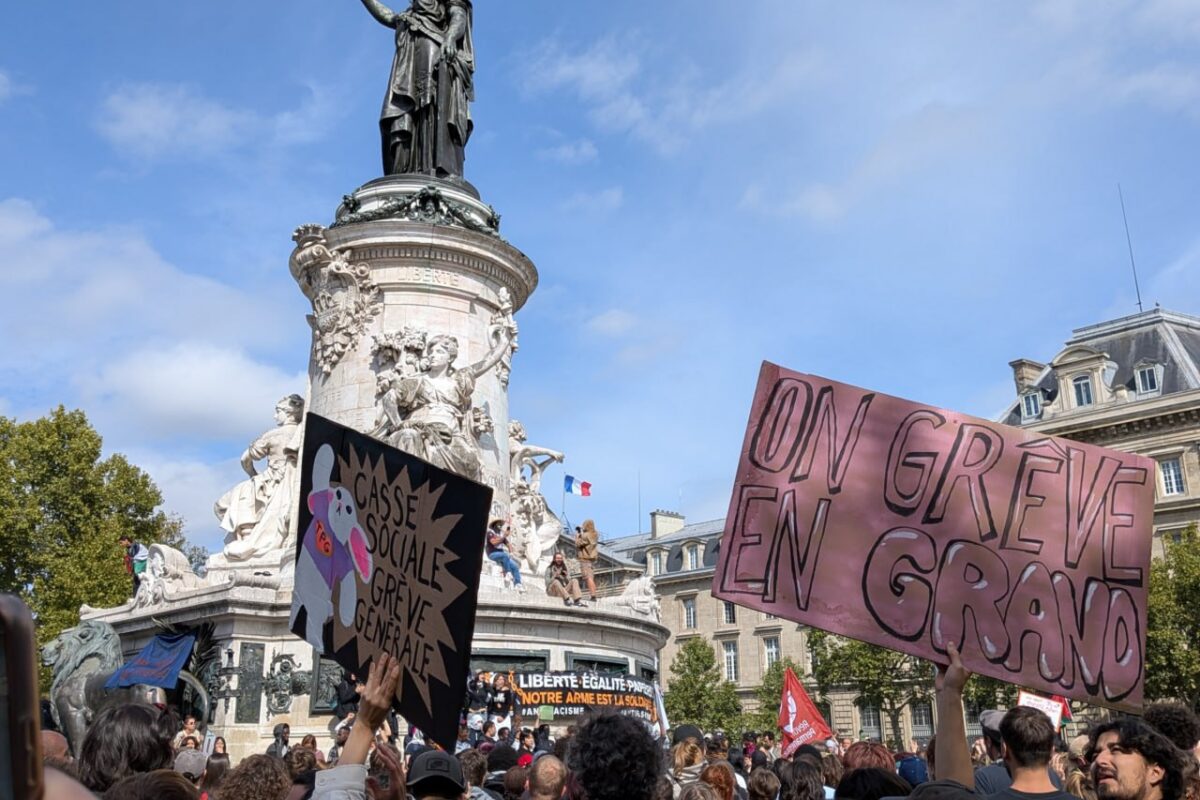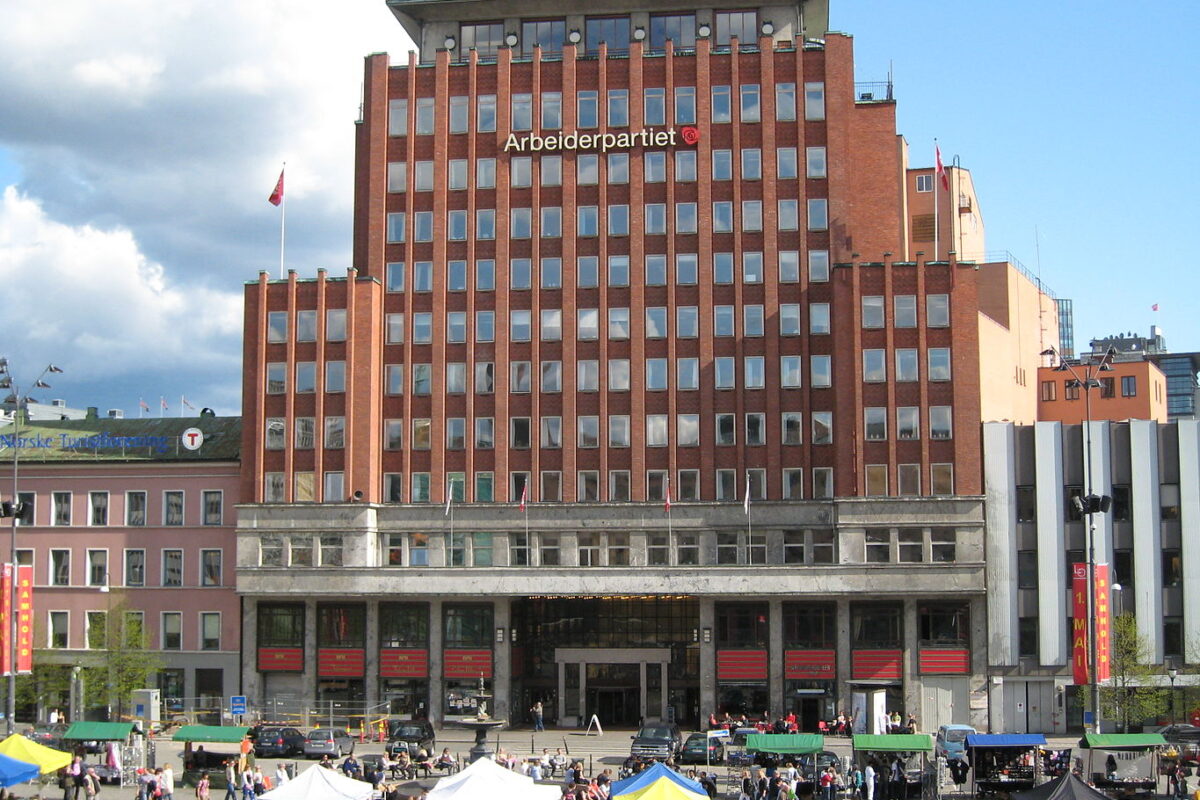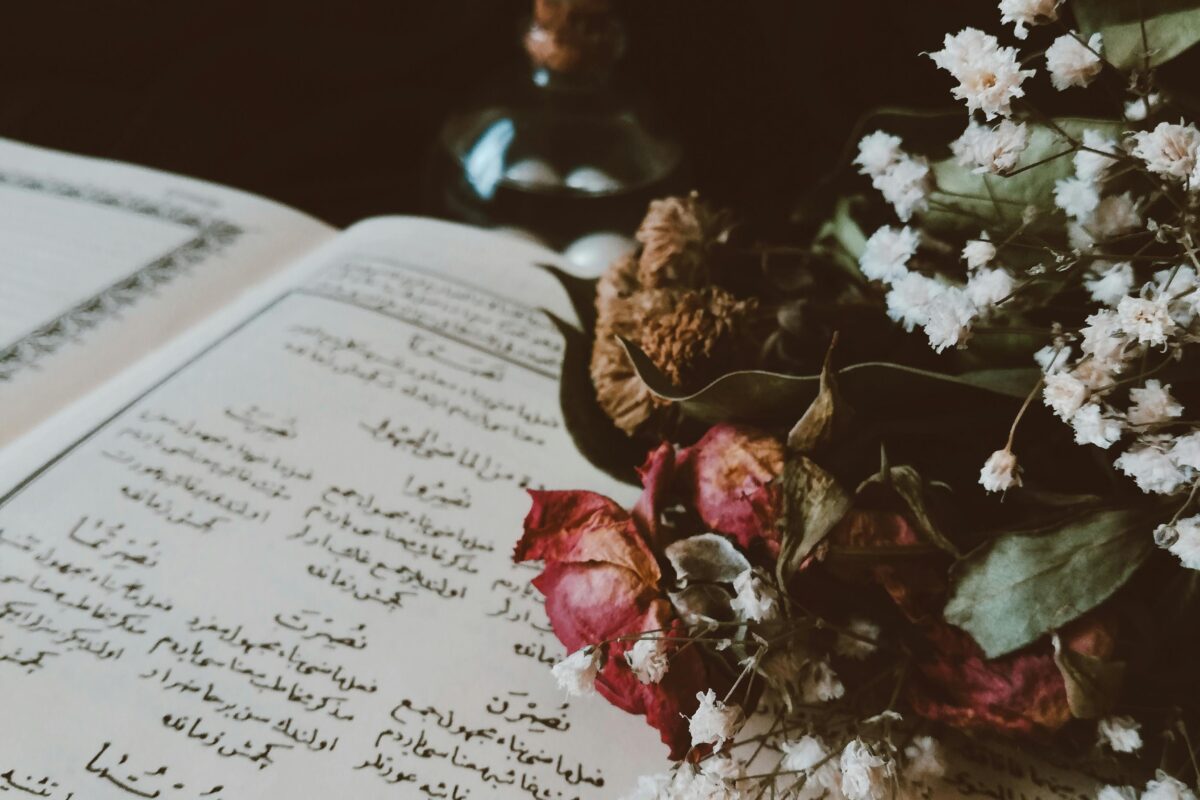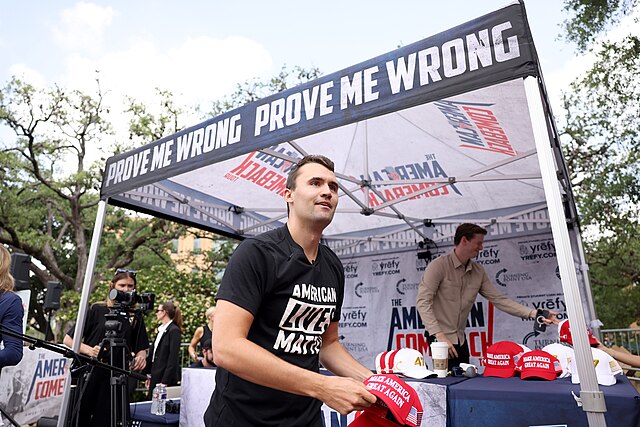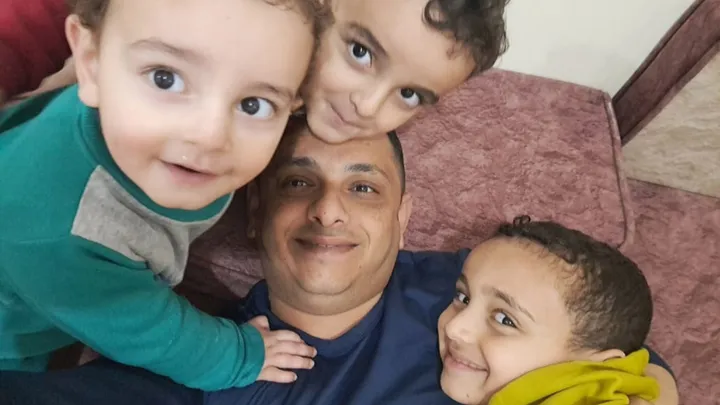Please note that many of the linked X (Twitter) posts and threads contain graphic depictions of violence.
Before his appearance at Utah Valley University, Charlie Kirk was doing what he always used to do: stoking the fire of the culture-war moral panic of the day. First, he shared a still from a CCTV footage of a young white woman sitting in a bus, looking up with a terrified glance at a Black man moments before being murdered. His caption: “America will never be the same.” A few hours later, he tweeted again, laying out his program: “it’s 100% necessary to politicize the senseless murder of Iryna Zarutska.”
The latter was his last tweet. A few hours later, he was shot by a sniper while speaking to a crowd of students, the first event in his planned “Prove Me Wrong” tour. Everyone with an internet connection has, by now, heard about his assassination and seen the pictures or the reactions. Which is quite normal–Kirk was a prominent conservative public figure in the US, what one may call a MAGA ideologue.
What is perhaps not so normal is that everyone who is connected, willingly or unwillingly, to the right-wing news and media ecosystem has also heard about the murder of Iryna Zarutska. Homicide rates in the US have been decreasing since the height of the pandemic, but they are still extremely high in international comparison. There were 17,000 homicides reported in 2024, and even if the figure for 2025 will probably be lower, it will still be high. Each of these deaths is, of course, a tragedy. Only some of them are, as Kirk said, politicized.
And this is the case with Iryna Zarutska, whose image has filled the internet. After Kirk’s death, far-right influencers started sharing Zarutska’s photo next to his, with ominous messages:
Each of these tweets, and tens of thousands of others, is an encapsulation of current American politics: an appeal to righteousness and victimhood that defines an in-group and an out-group and transmits an increasingly explicit threat towards the latter.
Innocence
The protection of white women from men of color, especially Black men, by white men is one of the founding myths of American history and national identity. It reached its pinnacle with the thousands of gruesome lynchings justified through flimsy accusations of sexual violence, or more often simply perceived inappropriate behavior toward a white woman. Later, when George H. W. Bush used the picture of Willie Horton in his campaign, he made it clear what values he was running on: the role of the president is to protect white Americans from racialized threats. Trump made it similarly clear long before he was anywhere near the White House, when he called for the death of the “Central Park Five.”
Like many other aspects of American white supremacism, MAGA did not invent the demonization of Black men and the victimization of white women. It simply made them explicit again in Trump’s second term. When a young Ukrainian woman who fled the Russian invasion was killed in North Carolina by a Black man with a history of arrests and mental issues, and all was caught on camera, it was the perfect case to be mobilized for propaganda.
Major conservative names wasted no time in weaponizing the murder to raise hell about how unsafe it is to just exist in US cities because of liberal policies–despite the decrease in the number of homicides. Kirk himself tweeted Zarutska’s name 11 times in three days before his death, and the issue was quickly taken up all over the X cesspool and in conservative media. It helped that the murder took place on a bus: using public transport occupies a special place in the American right-wing imagination as a practice that puts white lives in danger every day through exposure, as Elon Musk put it, to “a bunch of random strangers.”
It also helped that Zarutska was Ukrainian. One can say with certainty, without falling into the liberal habit of externalizing America’s problems to Putin, that MAGA and a lot of the American new right have Russian sympathies. The same people, however, including Kirk, were quick to abuse the tragedy of a young woman who flees a war zone only to be murdered in an American city.
A young white woman, of course. In the Western imagination, Eastern Europe is a repository of a still innocent whiteness, one that has not been touched by wokeness and therefore is a model to be followed. Online discourses about Zarutska played this up. When the pictures of Zarutska used were not taken from the video of her murder, they were selfies or studio photos juxtaposed with her murderer’s mugshot, creating a literal contrast between white innocence and Black threat.
Responsibility
Even this innocence, however, had its limits. Some online users chose to focus not on Zarutska’s selfies, but on a picture taken in her bedroom that also shows a Black Lives Matter poster. The posters took her from an innocent victim to a naive one, or even to a complicit liberal who contributed to her own murder. This simple, private gesture of sympathy with a movement for racial justice made Zarutska an endorser of crime who got hoisted by her own petard.
Compare this with the discourse surrounding Kirk’s death. After the news broke, many referred back to his infamous claim that “it’s worth it to have a cost of, unfortunately, some gun deaths every single year, so that we can have the Second Amendment to protect our other God-given rights.” Kirk’s literal acceptance of gun deaths certainly implicates him in the circumstances of his own death, the argument goes–a logic stronger than Zarutska’s complicity due to a BLM poster. According to conservative vox populi, however, such an argument is “disgusting” and “mentally disturbed.”
His unqualified support for the Second Amendment is just one of the many, many repulsive views that Kirk held and proselytized. His whole career, public persona, and political appeal were built on speaking supposed truth to supposed power, often in people’s faces. As the founder of Turning Point USA, Kirk was the quintessential debate-me bro, who made a living out of owning libs.
Should being a conservative gadfly get you killed? It should not, regardless of precedent. But, despite his image as a paragon of measured debate across party lines, Kirk was a purveyor of violence. His views were not only broadcasted to the public, but influenced and legitimized the MAGA program, justifying the abuse against and deaths of Black Americans, of women, of Palestinians. This should surely feature in the political reactions to his killing.
For some, on the left, it did, and they refused to refrain from speaking ill of the dead. But the majority of mainstream reactions, from Obama to Starmer, ignored his opinions and political role. Even those who were not beholden to propriety by political offices rushed to remember Kirk fondly. Ezra Klein, the envisioner of abundance, called Kirk’s vitirolic attacks on all vulnerable categories of Americans “the right way” to do politics. Klein and Kirk were simply “on different sides of most political arguments.” Jacobin also quickly published an article presenting Kirk “steering clear of cheap gotchas” as an invitation to open discussion.
But while liberals and some leftists buy into the virtue of politely debating calls to violence and threats to millions of people, Kirk’s comrades continue to simply act on them. Donald Trump also eulogized Kirk’s commitment to “open” and “good-faith debate.” But he quickly moved on to blaming his murder on those who compared Kirk “to Nazis,” and his diatribe against political violence contained the threat that the “administration will find each and every one of those who contributed to this atrocity.” For Trump, debate has limits: each and every one of those who criticized the fascist politics espoused by Kirk is responsible for his death.
Revenge
We can be sure that Trump means it. His second term has so far been marked by lifting the veil of liberal civility and soft power that has covered US violence so far. Trump mocks and directly threatens those who are against him, while Democratic lawmakers are (also) murdered. Trans people are demonized, pushed out, and soon might be even left without the right to bear arms, at the mercy of the state. Deportations are taking place en masse, without the flimsiest excuses or minimal plans, and Trump uses the specter of urban crime to bring the National Guard to D.C. and to threaten Chicago with “Chipocalypse.”
In other words, the violence is already here, and it comes from Kirk’s side. While the US is aiding the genocide in Gaza and bombing foreign boats, ICE has become a domestic goon squad, getting closer to receiving a carte blanche to arrest whoever they want in American cities. And the violence is not only perpetuated by the state. American streets become more and more dangerous for anyone who might be perceived as an immigrant, threatened with “arrests” by thugs posing as federal agents.
The two killings made the calls to violence even more strident. Posting a picture of Zarutska, JD Vance, like many other right-wingers, referred to Daniel Penny, the man who killed a supposedly threatening homeless Black man in a New York City subway train. And while the Wall Street Journal hurried to publish claims that the assassin’s bullets were “engraved with transgender, antifascist ideology,” whatever that means, Deputy Secretary of State Cristopher Landau threatened to deport foreigners found “praising, rationalizing, or making light” of Kirk’s assassination.
The fascistic blurring of the lines between vigilantism and state violence makes it obvious: when right-wingers on the internet say that they have been radicalized, that they are angry, that they are at war, we should believe them. Zarutska’s murder is being weaponized by the far-right against racialized threats. Kirk’s assassination is being weaponized against political opponents, understood in the broadest sense. American violence now has an added justification. As if it needed it.
This might end with a bang or with a whimper, but what is clearly not happening is a debate. It does not matter how the left reacts to the killings, and it will not matter what political orientation Kirk’s assassin has. The two murders have already taken their place in the existing narratives and justifications of violence. The American right has used them to reinforce the divide between friends and enemies and to remind the latter that they are under threat.
